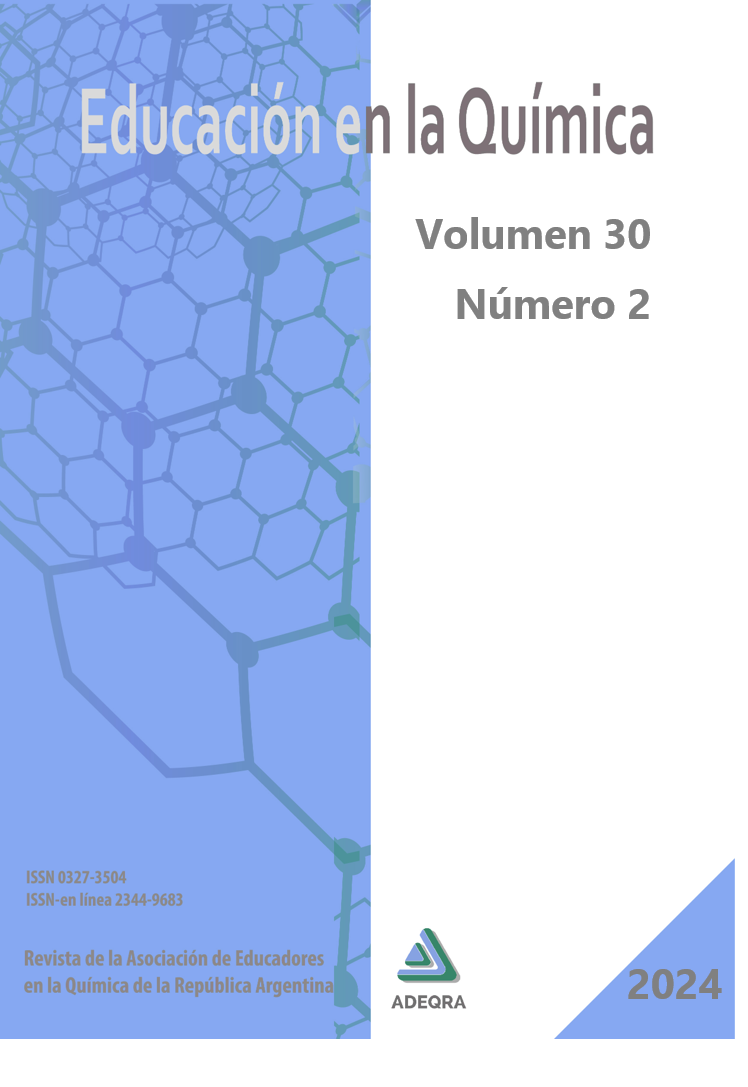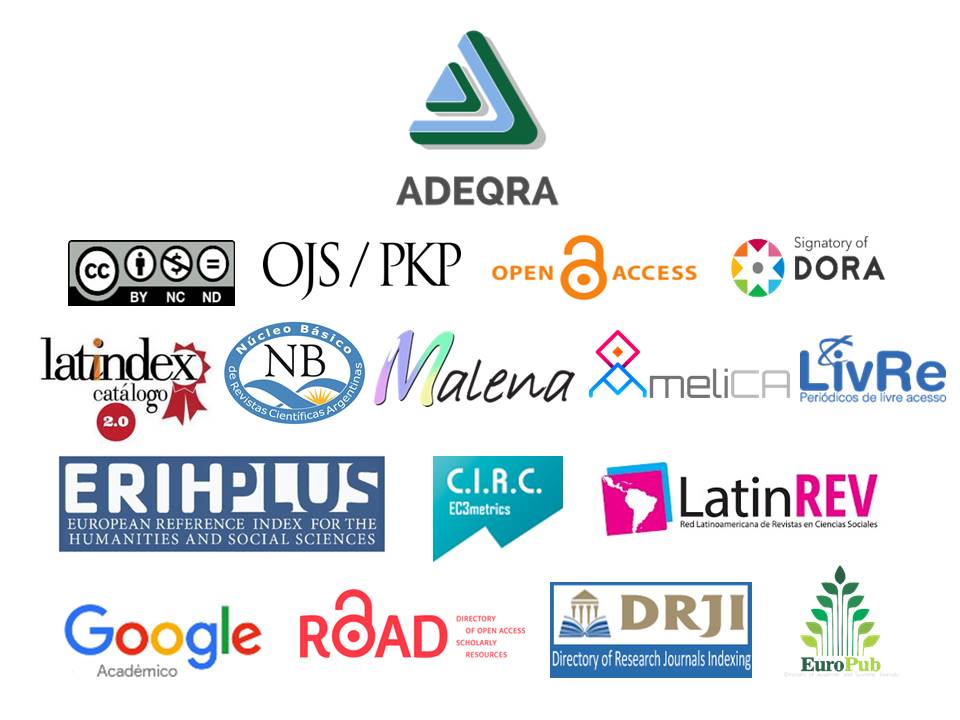Experimental Activities in Digital Environments of Chemistry Curricular Spaces in Teacher Training
Keywords:
chemistry, teaching activities, experimental activities, teaching approaches, digital environmentAbstract
A summary of the research conducted in the Master's Thesis in Education in Experimental Sciences and Technology of the Faculty of Exact, Physical, and Natural Sciences at the National University of Córdoba is presented, defended and approved on May 2, 2024, by Professor of Chemistry Norma Beatriz Jones from the province of Chubut, under the direction of Dr. María Gabriela Lorenzo, GINEDIC-CIAEC-UBA-CONICET.
In this thesis, the teaching activities implemented by their teachers in the training trajectories of two curricular units in a teacher training institution were described and characterized with the objective of analyzing how the teaching of chemistry was resolved with laboratory activities during the isolation of the Covid-19 pandemic. The research design was ex post facto retrospective in a natural context, with a descriptive-interpretive scope and qualitative approach, applying data collection techniques, such as interviews and document analysis. Elements of content analysis and grounded theory were used to analyze the data. Practical laboratory work was replaced by simple experimental activities in digital environments with expansion to the extended laboratory model, with traditional and directed research teaching approaches prevailing. The results will constitute inputs for future studies in the field of chemistry teaching.
ARK CAICYT: https://id.caicyt.gov.ar/ark:/s23449683/8mnrrkr5i
References
Cañal de León, P. (2000). Las actividades de enseñanza: Un esquema de clasificación. Revista Investigación en la Escuela, 40, 5-21. http://hdl.handle.net/11441/60181
Franco Moreno, R. A.; Velasco Vásquez, M. A. y Riveros Toro, C. M. (2017). Los trabajos prácticos de laboratorio en la enseñanza de las ciencias: tendencias en revistas especializadas. (2012-2016). Tecné, Episteme y Didaxis (41), 37.56.
Hodges, C., Moore, S., Lockee, B., Trust, T. y Bond, A. (2020). La diferencia entre la enseñanza remota de emergencia y el aprendizaje en línea. Educause Review. https://er.educause.edu/articles/2020/3/the-difference-between-emergency-remote-teaching-and-online-learning
Idoyaga, I. (2023). El Laboratorio Extendido: nuevas perspectivas para el diseño de la enseñanza de las ciencias naturales en contextos digitales. Innovaciones Educativas, 25, 44-58. 10.22458/ie.v25iEspecial.5083.
Johnstone, A. H. (2000). Teaching of chemistry – logical or psychological? Chemistry Education: Research and Practice in Europe, 1(1), 9–15.
Lorenzo, M. G. (2020). Revisando los trabajos prácticos experimentales en la enseñanza universitaria. Aula Universitaria, 21, e0004, 15-34. https://doi.org/10.14409/au.2020.21.e0004
Pozo, J. I. y Gómez Crespo, M. A. (2009). Aprender y enseñar ciencia. Del conocimiento cotidiano al conocimiento científico. (6ª ed.). Madrid: Morata.
Talanquer, V. (2009). Química: ¿Quién eres, a dónde vas y cómo te alcanzamos? Educación Química, 20(1), 220-226. http://dx.doi.org/10.1016/S0187-893X(18)30056-9
Published
How to Cite
Issue
Section
License
Copyright (c) 2024 Norma Beatriz Jones, María Gabriela Lorenzo

This work is licensed under a Creative Commons Attribution-NonCommercial-NoDerivatives 4.0 International License.



